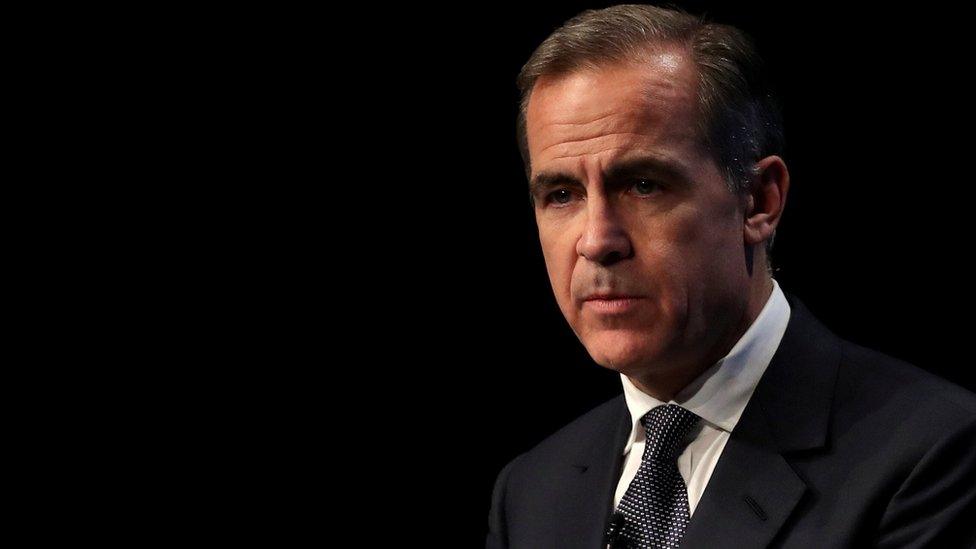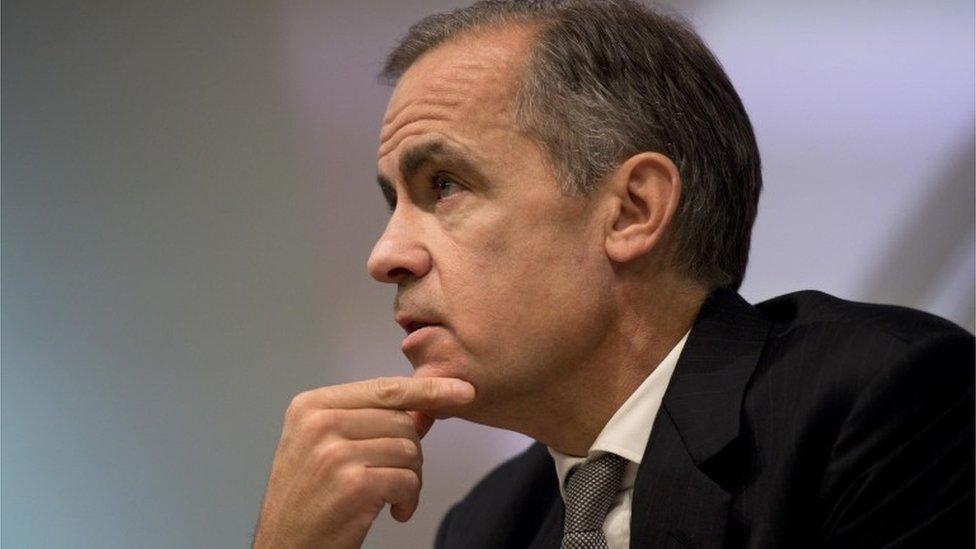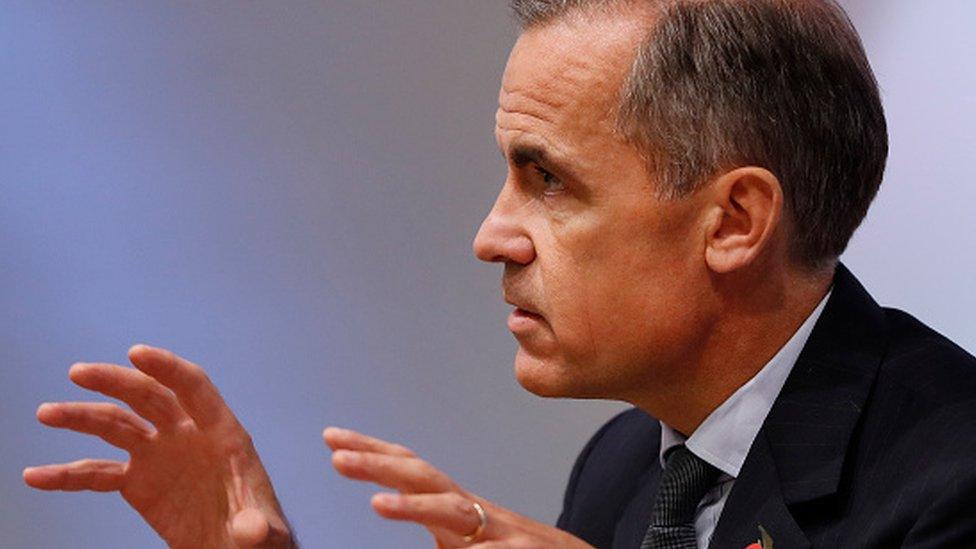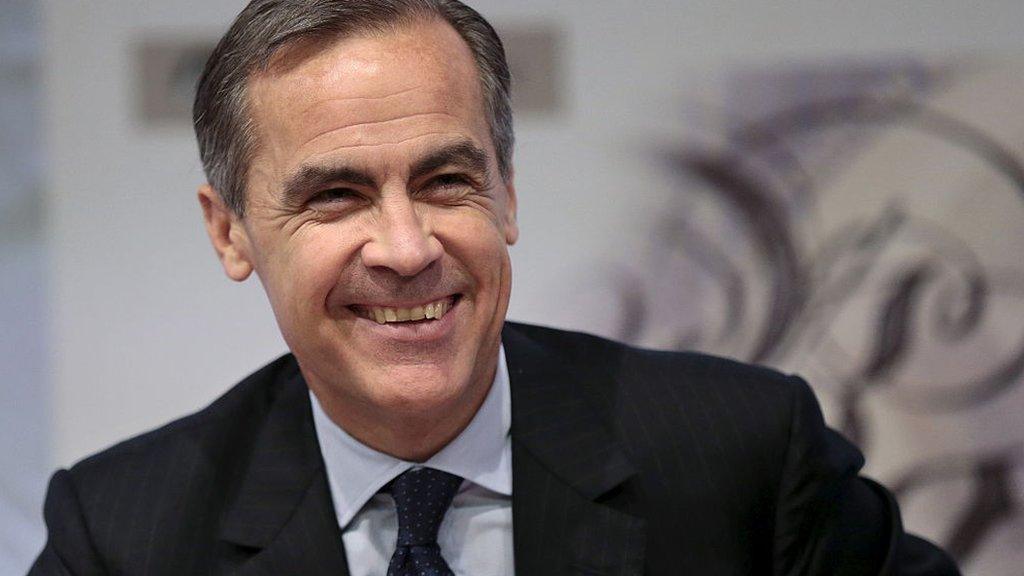Mark Carney warns of consumer slowdown this year
- Published

UK households have continued spending strongly since the referendum, but face headwinds this year, Bank of England governor Mark Carney has warned.
Consumers appeared to be "entirely looking through Brexit-related uncertainties", he said in a speech at the London School of Economics.
However, Mr Carney again warned that consumer spending could be hit by rising prices from the weaker pound.
He also sounded a cautionary note on the growth in household debt.
Mr Carney said that in the year to November, total household borrowing had risen 4%, while consumer credit had gone up by more than 10%, " the fastest rate since 2005".
Increasingly, the UK was relying on consumer spending for economic growth - rather than exports or investment - which boded poorly for the future, Mr Carney said on Monday.
Gerard Lyons, a UK economist who backed Brexit, said Mr Carney "did rightly highlight the extent to which growth has become more consumer led".
The UK had one of the world's fastest-growing advanced economies last year, but the Bank of England has forecast growth will slow in 2017 as higher inflation weighs on consumer spending.
"We do see a slowing in the economy and household spending this year... that's a slowing, not a stopping," he emphasised.
Economic forecasters have predicted that inflation could rise above the Bank's 2% target as a result of the pound's weakness since the Brexit vote.
Sterling fell against most major currencies on Monday as markets anticipated that Prime Minister Theresa May would use a major speech on Tuesday to advocate a so-called "hard Brexit" in which the UK would leave the EU's single market and customs union.
The UK was entering a "period of somewhat higher consumer price inflation", Mr Carney said.
As a result, the next interest rate move could be either up or down, he said.
"Monetary policy can respond, in either direction, to changes in the economic outlook as they unfold to ensure a sustainable return of inflation to the 2% target," he said.
Inflation target
The bank's remit recognised that bringing inflation back to target too rapidly could cause undesirable "volatility in output and employment", he added.
However, he warned: "There are limits to the extent to which above-target inflation can be tolerated."
Mr Carney said that following the decision to leave the EU, the UK would "redefine its openness to the movement of goods, services, people and capital".
"Over the next few years, the magnitude of the effects of this adjustment on the economy's supply potential, domestic demand and the value of sterling will be somewhat uncertain, and this process will have a significant bearing on inflation," he said.
But he pledged: "Whatever transpires, the MPC [Monetary Policy Committee] will manage monetary policy to achieve the inflation target in a sustainable manner."
- Published5 December 2016

- Published30 November 2016

- Published31 October 2016
